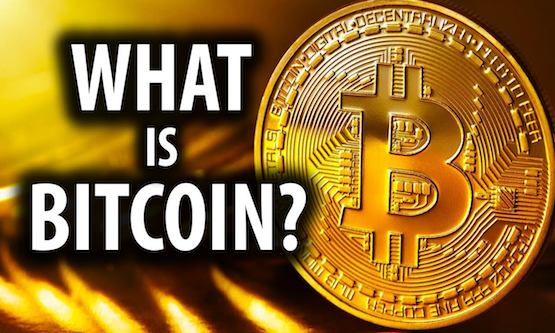Heard about this thing called bitcoin? Unless you’ve been living under a rock we’re guessing: yes, you have. The first and most famous digital cryptocurrency has been racking up headlines late last year due to a breathtaking rise in value — cracking the $1,000 threshold for the first time on Jan. 1 before ascending to nearly $19,000 in early December 2017.
Bitcoin involves technology, currency, math, economics and social dynamics. It’s multifaceted, highly technical and still very much evolving. This explainer is meant to clarify some of the fundamental concepts and provide answers to some basic bitcoin questions.
But first: A quick backstory
Bitcoin was invented in 2009 by a person (or group) who called himself Satoshi Nakamoto. His stated goal was to create “a new electronic cash system” that was “completely decentralised with no server or central authority.” After cultivating the concept and technology, in 2011, Nakamoto turned over the source code and domains to others in the bitcoin community, and subsequently vanished. (Check out the New Yorker’s great profile of Nakamoto from 2011.)
So what is bitcoin?
Simply put, bitcoin is a digital currency. No bills to print or coins to mint. It’s decentralised — there’s no government, institution (like a bank) or other authority that controls it. Owners are anonymous; instead of using names, tax IDs, or social security numbers, bitcoin connects buyers and sellers through encryption keys. And it isn’t issued from the top down like traditional currency; rather, bitcoin is “mined” by powerful computers connected to the internet.
What determines the value of a bitcoin?
Ultimately, the value of a bitcoin is determined by what people will pay for it. In this way, there’s a similarity to how stocks are priced.
The protocol established by Satoshi Nakamoto dictates that only 21 million bitcoins can ever be mined — about 12 million have been mined so far — so there is a limited supply, like with gold and other precious metals, but no real intrinsic value. (There are numerous mathematical and economic theories about why Nakamoto chose the number 21 million.) This makes bitcoin different from stocks, which usually have some relationship to a company’s actual or potential earnings.
Without a government or central authority at the helm, controlling supply, “value” is totally open to interpretation. This process of “price discovery,” the primary driver of volatility in bitcoin’s price, also invites speculation (don’t mortgage your house to buy bitcoin) and manipulation.
Bitcoin has made Satoshi Nakamoto a billionaire many times over, at least on paper. It’s minted plenty of millionaires among the technological pioneers, investors and early bitcoin miners. The Winklevoss twins, who parlayed a $65 million Facebook payout into a venture capital fund that made early investments in bitcoin, are now billionaires according to Fortune.
How do I buy bitcoin?
If you’re willing to assume the risk associated with owning bitcoin, there is an increasing number of digital currency exchanges like Coinmama, CEX, Kraken and Coinbase — the largest and most established of them — where you can buy, sell and store bitcoins.
Getting started is about as complicated as setting up a Paypal account. With Coinbase, for example, you can use your bank (or Paypal account) to make a deposit into a virtual wallet, of which there are many to choose from. Once your account is funded, which usually takes a few days, you can then exchange traditional currency for bitcoin.
Is all of this legal?
Short, qualified answer: Yes, for now, as long as — like any currency — you don’t do illegal things with it. For instance, bitcoin was the sole currency accepted on Silk Road, the Dark Web marketplace for drugs and other illicit goods and services that was shuttered by the FBI in 2013.
Since then, bitcoin has largely evaded regulation and law enforcement in the US, although it’s under increased scrutiny as it attracts more mainstream attention. Though it’s legal to buy and sell bitcoin, miners and exchanges occupy a grey area that could be vulnerable to future regulation and/or law enforcement action.
Are there other cryptocurrencies?
Yes. More than a thousand, with more sprouting up every day. Aside from bitcoin, which is the real progenitor of them all, other well-known alternative currencies include Ethereum, Ripple and Litecoin. We take a look at the pros and cons of each, and how they stack up, in this explainer.
Buying and selling bitcoin: A quick and dirty introduction to trading cryptocurrency.
Bitcoin, Ethereum or Litecoin: Which is best for you?


